Borikén: I Can Hear Her Breathing
A Puerto Rican who has always lived in the diaspora, I made my way to the island permanently in 2017, determined to make good on my years-long desire of farming in Borikén – the indigenous name for Puerto Rico. While 2020 brought unimaginable struggles into communities around the world, it also saw the sprouting, the growth of my long-held dream.
My partner and I recently purchased a farm here in Rio Grande, Puerto Rico – an 8-acre parcel of steep, rocky land that slopes and undulates down to the river that serves as a boundary line. The farm sits at the edge of the El Yunque rainforest with its nearly daily torrential downpours, its slick, clay soils, and an ever-present cacophony of tropical nature sounds playing like a soundtrack in the background.
As I dream of the possibilities of this land, envisioning my new path forward, I am reminded of how we got here – of all that has happened.
This island has experienced so much. It has experienced too much.
400 years of Spanish colonial rule followed by another 100 of the U.S. variety.
A brutal political campaign that squashed a movement for Independence in the 1950’s, making it illegal for a time to fly the Puerto Rican flag or speak Spanish.
An economy plunged into bankruptcy by crushing, unpayable debt, and the 2016 PROMESA Act that imposed austerity measures and gutted the island’s healthcare, public services, infrastructure, and education systems.
Hurricane Maria’s landfall on September 20th, 2017 that destroyed infrastructure, the entire electrical and communications grid, and an estimated 80% of local food production and claimed the lives of more than 4,600 people.
A 6.4 magnitude earthquake on January 7th, 2020, and subsequent aftershocks that lasted months, displacing over 8,000 people from their homes.
And now…. the COVID-19 pandemic that is raging across the densely-populated island, adding pressure to an already-fragile healthcare system that is buckling under these new demands, this “new normal.”
This past year has me thinking about the power of seeds. I remember overhearing a local farm leader recount how an elder had told them that the best way to store seeds – these time capsules of flavor, of nourishment, of culture – is in fact the soil. To cultivate the land, sow those cherished seeds, harvest and savor the fruit, save their seeds, and start the cycle all over again – that is our best hope for food sovereignty. It is our best hope for local control and self-determination of our food heritage, now and in the future. I am reminded of my seed storage box in the bottom of my fridge – complete with a few straggling seed packs leftover from donation efforts in the aftermath of Hurricane Maria. I make a mental note to plant more seeds, to sow as much as I can. Even if the farm beds are not yet completed, the soil is forgiving and appreciative.
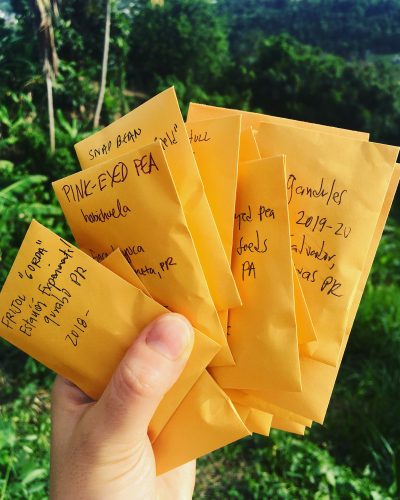
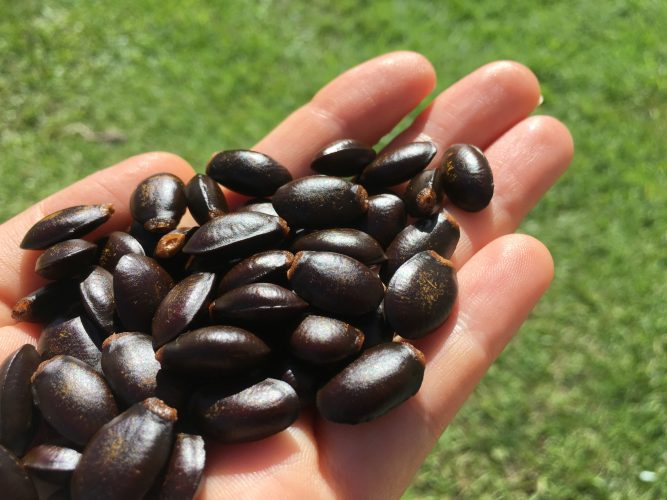
When I leave the island for “the States,” I inevitably end up answering prodding questions about our experience surviving Hurricane Maria or the recent earthquakes. I hear that tired refrain repeated over and over: “Puerto Ricans have dealt with so much. They are so resilient.”
I’m tired of being resilient. We are tired of having to be resilient.
My barrio – the entire island, really – is littered with casualties of these disasters, sometimes natural but always man-made. It is strewn with houses that used to be homes but are now barren, empty, crumbling. Tattered blue FEMA tarps dot the landscape and sway like flags flapping in the wind. Tangled green vines and grasses climb over fences, up walls, and over roofs, choking out the dazzling sunlight and building new microclimates, creating new realms. The natural world marches on, chugs forward with its unrelenting hum, enveloping our puny, human-sized structures, our best attempts at forever… swallowing them whole.
Back on our farm I clear a small patch of land of its vines and grasses. I prepare the soil and tuck the seeds into the welcoming ground. I don’t bother to water the seeds because I know the timely rainforest downpour is on its way. As I look out over the land I am now entrusted to steward – with its sweltering breezes and raucous birdsong that I cannot yet identify – the words of Indian author and political activist Arundhati Roy ring in my ears:
“Another world is not only possible, she is on her way. On a quiet day, I can hear her breathing.”
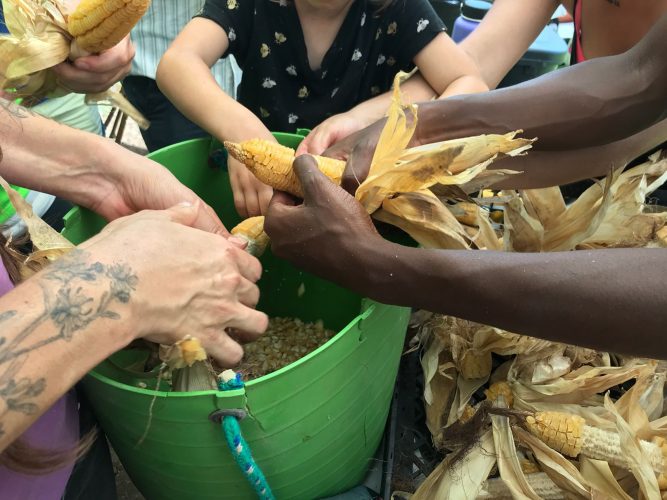
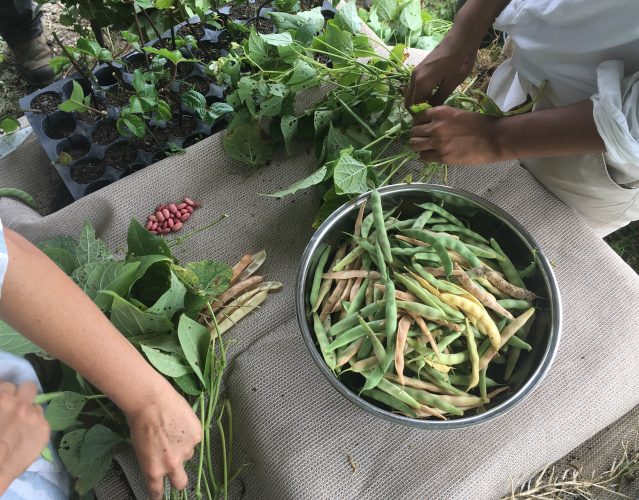
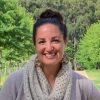
Maria Elena Rodriguez (she/her/hers)
Maria Elena is a former Co-Coordinator of the CAGJ Food Justice Project. She is a Food Systems Specialist with DAISA Enterprises where she conducts research, provides strategic assistance to foundations and nonprofits, and supports emerging food leaders. She is also the Founder of Cosecha Caribe, an agroecological farm and food business. She is committed to creating a food system that honors ancestral knowledge, uplifts BIPOC communities, nourishes the environment, and deepens Queer community.

